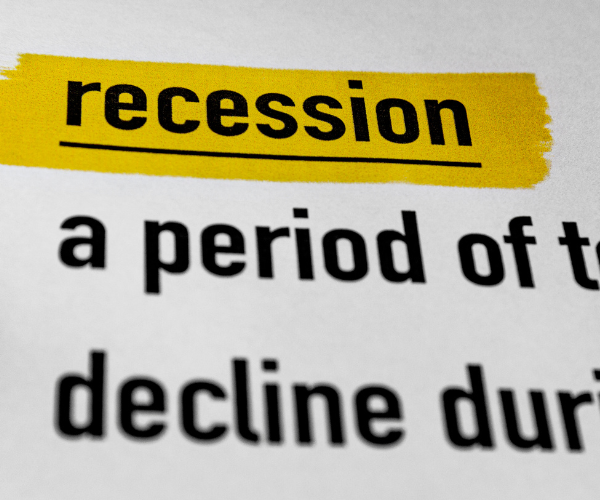If you’ve turned on the news any time during the last few months, it’s likely you’ve heard the dreaded word “recession.”
Investopedia defines recession as “a period of declining economic performance across an entire economy that lasts for several months.” The last major recession we experienced in the United States began in 2007 and ended in 2009 after the bursting bubble of the US housing market.
These days, according to The Street, a possible recession could be because of a number of factors:
1. The Federal Reserve and higher interest rates
2. There was massive fiscal stimulus during the pandemic, financed by the Fed buying bonds
3. Rising input and wage costs
4. High oil prices
5. China Is decelerating sharply
But as with anything when it comes to finances, the big question is…what does a recession mean for YOU?
Here’s the Good News
If you have a solid financial plan in place, you’ve likely already “recession-proofed” your finances. However, there are a few other things you could do to better prepare:
- Bulk up emergency savings to cover a possible job loss (just don’t keep too much in savings – CLICK HERE for my blog post about hoarding cash).
- Pay down high interest debt
- Streamline your budget. Now is a good time to trim the fat on budgets because you are probably more clear-headed and not under pressure from a possible decline in income. Review subscription services, cable and cell phone plans, etc.
- Polish up your resume and consider getting additional skills. You’ll be ahead of the game if you do find yourself looking for a job.
One thing I DON’T Recommend
Try to avoid cutting down on retirement plan contributions unless absolutely necessary. Missing even a small number of contributions can have a major impact on account growth. Also, down markets can actually be good for savers (hard to believe, but true!) because of dollar cost averaging.
Remember that there are always going to be periods of economic slowdown; this is inevitable in a modern economy. But taking some action, like the tips above, might minimize the impact on you personally while you wait for the economy to begin “growing” again.
Content in this material is for general information only and not intended to provide specific advice or recommendations for any individual.
Dollar cost averaging involves continuous investment in securities regardless of fluctuation in price levels of such securities. An investor should consider their ability to continue purchasing through fluctuating price levels . Such a plan does not assure a profit and does not protect against loss in declining markets.
Investing includes risks, including fluctuating prices and loss of principal.






